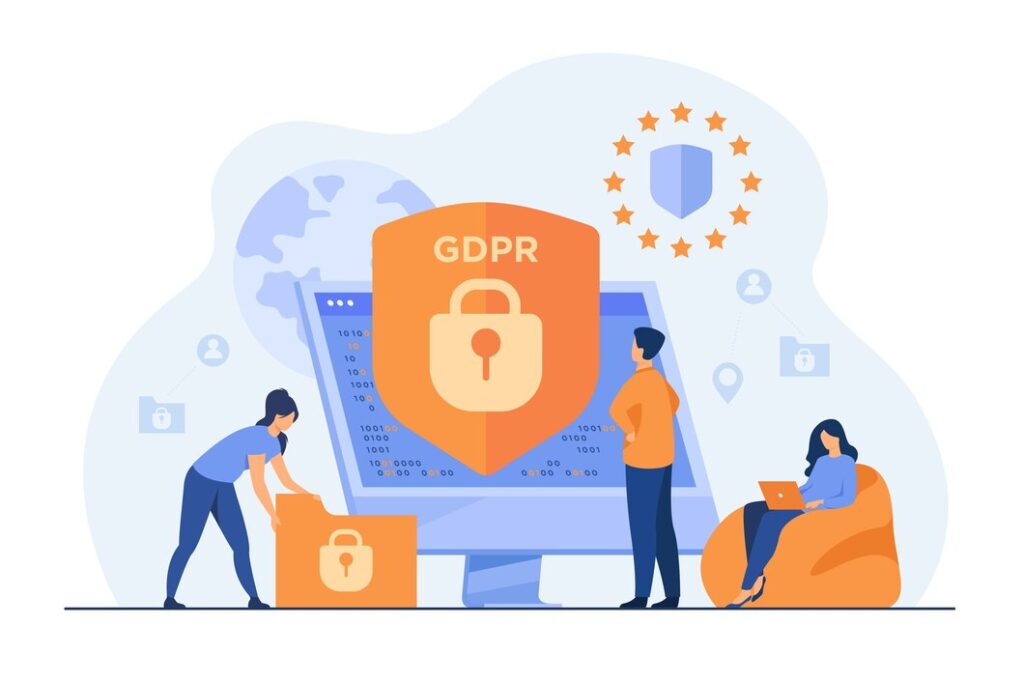In today’s digital age, data protection is more important than ever. With increasing amounts of personal data being collected, stored, and processed by businesses, understanding the implications of data protection laws like the General Data Protection Regulation (GDPR) is crucial for small business owners, digital marketers, and IT professionals. This blog post aims to provide an overview of data protection, the key aspects of GDPR, and practical steps for businesses to ensure compliance.
What is Data Protection?
Data protection refers to the practices, safeguards, and binding rules put in place to protect personal data from misuse, unauthorized access, and breaches. It ensures that individuals have control over their personal information and that organizations manage this data responsibly.
Introduction to GDPR
The General Data Protection Regulation (GDPR) is a comprehensive data protection law implemented by the European Union in May 2018. It was designed to harmonize data privacy laws across Europe, protect the privacy of EU citizens, and reshape how organizations handle personal data. Although GDPR is an EU regulation, it has a global impact, affecting any business that processes the personal data of EU residents, regardless of its location.

Key Principles of GDPR
GDPR is built on several key principles, including:
- Lawfulness, Fairness, and Transparency:
- Organizations must process personal data lawfully, fairly, and transparently. They must inform individuals about how their data will be used and obtain their consent where necessary.
- Purpose Limitation:
- Data should be collected for specified, explicit, and legitimate purposes and not further processed in a manner that is incompatible with those purposes.
- Data Minimization:
- Organizations should only collect and process data that is necessary for their specified purposes.
- Accuracy:
- Personal data must be accurate and kept up-to-date. Inaccurate data should be corrected or deleted without delay.
- Storage Limitation:
- Data should be kept in a form that permits identification of individuals for no longer than necessary.
- Integrity and Confidentiality:
- Organizations must ensure appropriate security of personal data, including protection against unauthorized or unlawful processing and accidental loss.
- Accountability:
- Organizations are responsible for compliance with these principles and must be able to demonstrate their compliance.
How GDPR Impacts Small Businesses
For small businesses, GDPR compliance can seem daunting, but understanding its impact is crucial to avoid potential penalties. Here are some of the ways GDPR affects small businesses:
- Consent:
- Obtaining clear and explicit consent from individuals before collecting their data is a fundamental requirement under GDPR.
- Data Subject Rights:
- Individuals have rights under GDPR, including the right to access their data, request corrections, and demand deletion (the right to be forgotten).
- Data Protection Officers:
- Some businesses may be required to appoint a Data Protection Officer (DPO) to oversee compliance with GDPR.
- Data Breach Notification:
- Organizations must notify relevant authorities of certain types of data breaches within 72 hours of becoming aware of them.
Steps for Ensuring GDPR Compliance
- Conduct a Data Audit:
- Identify what personal data your business collects, processes, and stores. Understand why it’s collected, how it’s used, and who has access to it.
- Update Privacy Policies:
- Ensure your privacy policy is clear and transparent, outlining how personal data is collected, processed, and protected.
- Obtain Consent:
- Implement mechanisms for obtaining valid consent from individuals before collecting their data. Ensure they can easily withdraw consent if they choose.
- Implement Data Security Measures:
- Use encryption, access controls, and regular security audits to protect personal data from unauthorized access and breaches.
- Train Employees:
- Educate your employees about GDPR principles and their role in ensuring compliance.
- Appoint a Data Protection Officer (if required):
- If your business processes large amounts of personal data, consider appointing a DPO to oversee data protection efforts.
- Develop a Data Breach Response Plan:
- Prepare a plan for responding to data breaches, including notifying authorities and affected individuals.

More About Principles of Caldicott
The principles of Caldicott are another framework relevant to data protection, particularly within healthcare settings. These principles emphasize the importance of patient confidentiality and dictate how personal health information should be handled. Here is More about principles of caldicott, While GDPR provides a broader legal framework, the Caldicott principles offer specific guidance on maintaining patient trust and safeguarding sensitive health data. Understanding these principles can further enhance a business’s approach to data protection and privacy.
Conclusion
Understanding and implementing GDPR is essential for small businesses, digital marketers, and IT professionals. By adhering to GDPR principles, businesses can not only avoid hefty fines but also build trust with their customers and gain a competitive advantage. Start by conducting a thorough data audit, updating your privacy policies, and educating your employees on GDPR compliance. For personalized assistance, consider consulting a legal expert or a Data Protection Officer.
By taking proactive steps towards compliance, you can ensure your business operates smoothly in the evolving landscape of data protection. Read more here and Thank you.